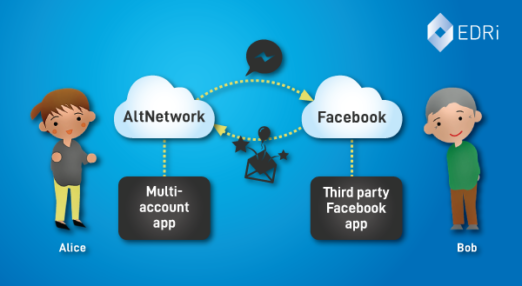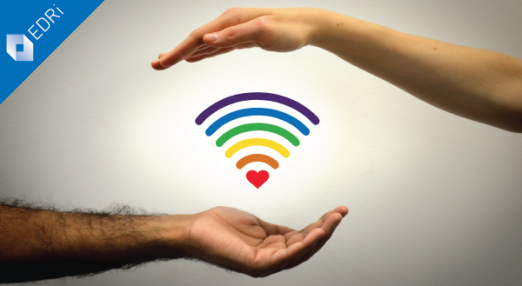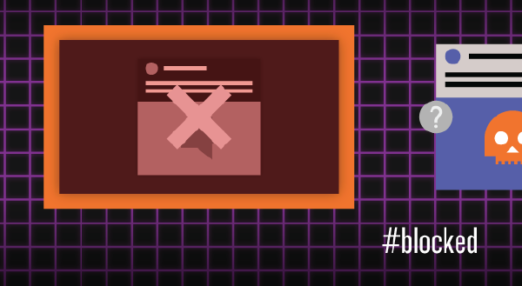platforms
Filter by...
-

Who should decide what we see online?
Online platforms rank and moderate content without letting us know how and why they do it. There is a pressing need for transparency of the practices and policies of these online platforms.
Read more
-

Can we rely on machines making decisions for us on illegal content?
While automation is necessary for handling a vast amount of content shared by users, it makes mistakes that can be far-reaching for your rights and the well-being of society. Most of us like to discuss our ideas and opinions on silly and serious issues, share happy and sad moments, and play together on the internet. […]
Read more
-

Shedding light on the Facebook content moderation centre in Athens
Following months of efforts, in early September 2019, EDRi observer Homo Digitalis managed to shed light on a case that concerns each and every Facebook user: a content moderation centre in Athens, Greece, tasked to moderate Facebook ads. As many other content moderation policies run by virtually unaccounatable private companies, this can pose threats to […]
Read more
-

Interoperability: A way to escape toxic online environments
The political debate on the future Digital Services Act mostly revolves around the question of online hate speech and how to best counter it. Whether based on state intervention or self-regulatory efforts, the solutions to address this legitimate public policy objective will be manifold. In its letter to France criticising the draft legislation on hateful […]
Read more
-

A privately managed public space?
Our “public spaces” online where we meet each other, organise, or speak about social issues, are often controlled and dominated by private companies (platforms like Facebook and YouTube). Pushing platforms to decide which opinions we are allowed to express and which not is not going to solve major problems in our society. The EU rules […]
Read more
-

The digital rights of LGBTQ+ people: When technology reinforces societal oppressions
Online surveillance and censorship impact everyone’s rights, and particularly those of already marginalised groups such as lesbian, gay, bisexual, transgender and queer and others (LGBTQ+) people. The use of new technologies usually reinforces existing societal biases, making those communities particularly prone to discrimination and security threats. As a follow-up to Pride Month, here is an […]
Read more
-

Regulating online communications: Fix the system, not the symptoms
Our digital information ecosystem fails to deliver the communications landscape needed to sustain our democracies. In a problem analysis, EDRi member Bits of Freedom introduces and disentangles some of the key concepts and issues surrounding the dominant role of platforms and the resulting harms to our freedom of expression.
Read more
-

Open letter demands interoperability of the big online platforms
On 21 May 2019, EDRi observer La Quadrature du Net, along with 70 other organisations, including some EDRi members, sent a letter asking the French government and members of the Parliament to force web giants (Facebook, Youtube, Twitter…) to be interoperable with other online services. The purpose is to allow users of these platforms to […]
Read more
-

SIN v Facebook: Tech giant sued over censorship in landmark case
On 7 May 2019, Civil Society Drug Policy Initiative (SIN), a Polish non-profit organisation promoting evidence-based drug policy, filed a lawsuit with the support of the Polish EDRi member Panoptykon Foundation, against Facebook in a strategic litigation case aimed at fighting private censorship on the internet.
Read more
-

What the YouTube and Facebook statistics aren’t telling us
After the recent attack against a mosque in New Zealand, the large social media platforms published figures on their efforts to limit the spread of the video of the attack. What do those figures tell us?
Read more
-

Digital rights as a security objective: Abuses and loss of trust
Violations of human rights online can pose a real threat to our societies, from election’s security to societal polarisation. In this series of blogposts, we explain how and why digital rights must be treated as a security objective. In this third and final blogpost, we discuss how digital rights violations can exacerbate breaches to the […]
Read more
-

Digital rights as a security objective: New gateways for attacks
Violations of human rights online, most notably the right to data protection, can pose a real threat to electoral security and societal polarisation.
Read more
